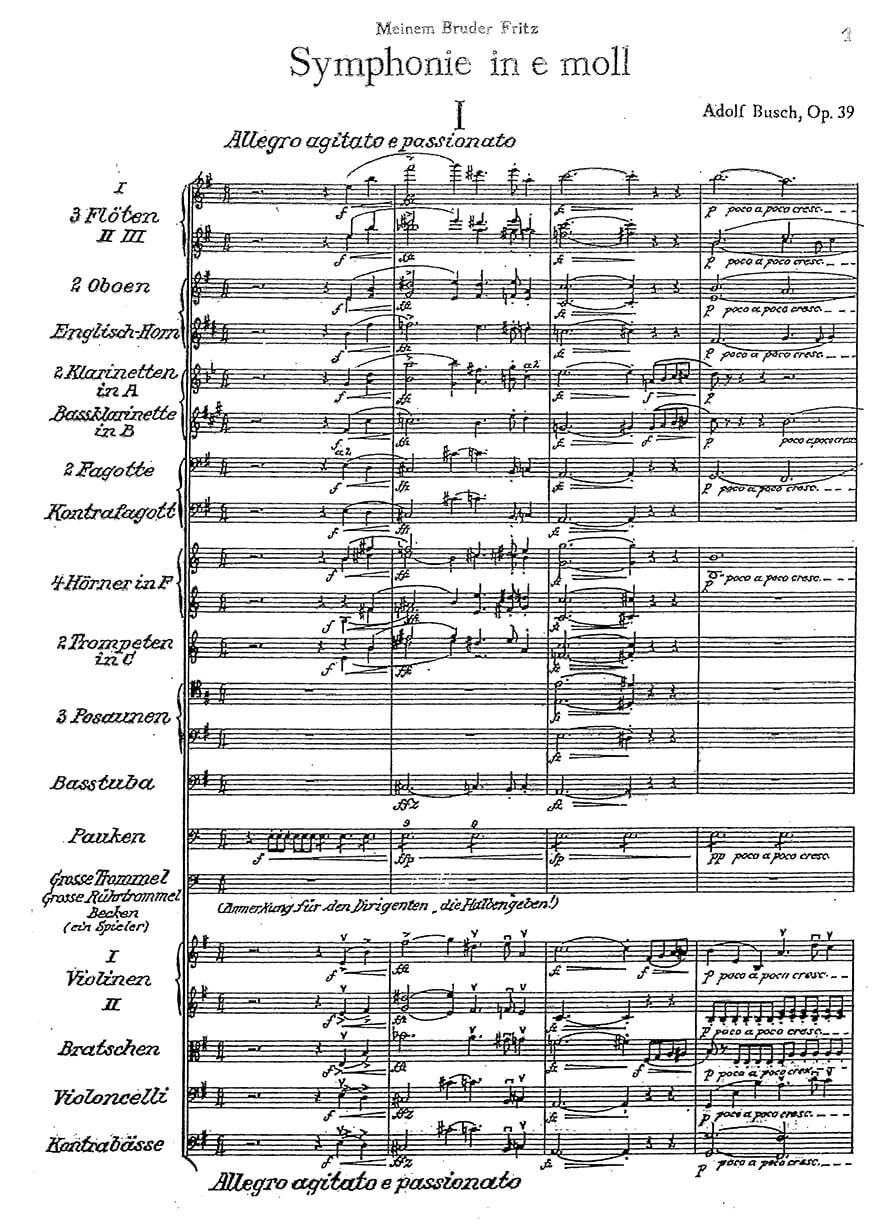Symphony in E minor op. 39 for large orchestra
Busch, Adolf
46,00 €
Preface
Adolf Busch – Symphony in E minor op. 39 for large orchestra
(b. Siegen, August 8, 1891 – d. Guilford, Vermont, USA, June 9, 1952)
Preface
Adolf Busch – a composer? The musician is known primarily as a performer, even if the community of those who appreciate historical recordings is not necessarily growing rapidly today. But anyone who has heard Busch as a violinist is not only influenced by his playing when listening to recent interpretations of the same works, but also makes demands that cannot always be met. As an interpreter, Adolf Busch was famous for the intensity of his musical approach. He refused musical beauty as an end in itself (just like his brothers) – the deepening into the musical substance is still considered exemplary today. As a person, too, Busch was similarly uncompromising – his position against Nazi Germany, his resolute devotion to and commitment to what he believed in and what was important to him are still exemplary today.
Adolf Busch was born in Siegen in 1891, the second of seven surviving children of a carpenter who, through much practice, had become a violin maker, and the daughter of a locksmith who ran her own handicrafts shop. Adolf received his first violin lessons from his father at the age of two and a half, he performed in public for the first time at the age of four, and the “child prodigy” label was not long in coming. From 1902 to 1909 he studied at the Cologne Conservatory with Willy Hess, Bram Eldering and Fritz Steinbach. Adolf’s brother, the conductor Fritz Busch, describes his brother’s composition lessons with Steinbach as “rarely given[…] but all the more excellent for it[…]”. Large and small forms were explored, and Steinbach also provided his pupil with poems on song composition. On 26 January 1909, Adolf Busch met Max Reger and he played the composer’s Violin Concerto in A major by heart, accompanied by his brother Fritz. Reger was enthusiastic about his playing, and the two subsequently gave many concerts together. Busch’s compositional development owes much to their friendship, even though other composers, such as Ferruccio Busoni, later left their mark on Busch’s oeuvre, which was nevertheless quite unique.
In 1912 Busch became concertmaster of the Vienna Konzertverein Orchestra and in 1918 was appointed professor at the Musikhochschule in Berlin, which he gave up after only a few years. Already in Vienna he had become primarius of a string quartet, which was renamed the Busch Quartet in 1918. …
read more / weiterlesen … > HERE
Score Data
| Score Number | 4881 |
|---|---|
| Edition | Repertoire Explorer |
| Genre | Orchestra |
| Pages | 230 |
| Size | 210 x 297 mm |
| Printing | Reprint |
